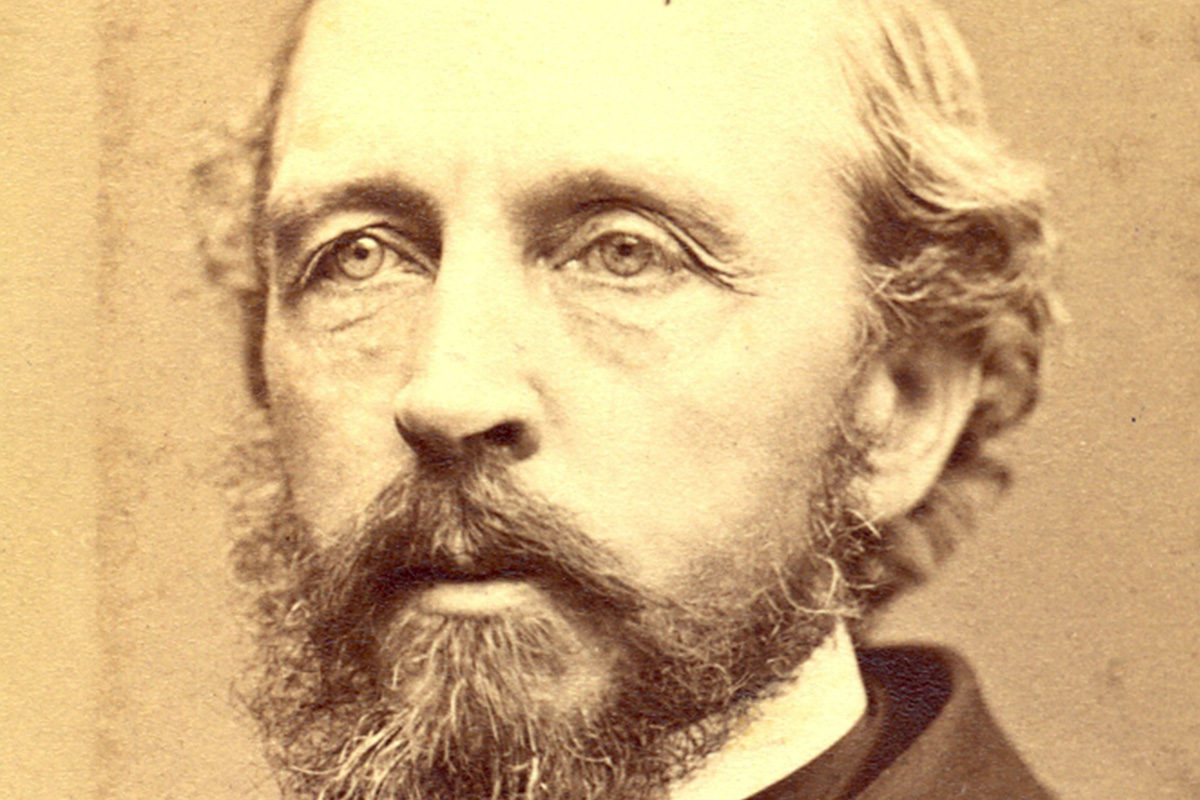“Good striving
Brings thriving.”
~William R. Alger, American author & minister
“Activity” (1856) The Poetry of the East, London: Sampson Low, Son & Co., p. 221; online via Google Books, books.google.com
William Rounseville Alger, W.R. Alger, William R. Alger
28 December 1822 - 7 February 1905
Birthplace: Freetown, Bristol County, Massachusetts
American church leader & author

“Good striving
Brings thriving.”
~William R. Alger, American author & minister
“Activity” (1856) The Poetry of the East, London: Sampson Low, Son & Co., p. 221; online via Google Books, books.google.com
Extended excerpt: [Short poem. Full verse below.]
“Good striving
Brings thriving.
Better a dog who works,
Than a lion who shirks.” (p. 221)
Source Note: Alger included the poem above in his examples of “Oriental Poetry,” or, to use another of his headings, as a selection from the “Metrical Specimans of the Thought, Sentiment, and Fancy of the East.” (Poetry of the East, p. 93)
In his introduction, however, Alger writes that the content of The Poetry of the East came from “faithful representations of Hindu, Persian, and Arab thoughts, sentiments, and fancies, which I have met with in the voluminous records of the different Asiatic Societies, in prose versions of the Vedas and Puranas, and in a thousand scattered sources. Of the rest, the originating hint and impulse alone, or merely the character and style, are Oriental…” (p. iv) After Alger credited a few specific sources, he added – “All the pieces remaining, in addition to those now designated, are to be ascribed, under the conditions before stated, to the present writer.” (p. v – bold text Repeat Right) Although it’s certainly possible that the prose appeared elsewhere prior to 1856 – to our knowledge, it is Alger’s original poem “merely in the character and style” of the works in his collection.
Source link: The Poetry of the East (1856) online via Google Books: https://books.google.com/books?id=_9AOAAAAQAAJ&pg=PA221&dq=Good+striving+Brings+thriving+Better+a+dog+who+works
“Ten poor men sleep in peace on one straw heap, as Saadi sings,
But the immensest empire is too narrow for two kings.”
~William R. Alger, American author & minister
“Elbow-Room” (1856) The Poetry of the East, London: Sampson Low, Son & Co., p. 172; online via Google Books, books.google.com
Extended excerpt: None. “Elbow-Room” is only the two lines of quoted verse.
“Ten poor men sleep in peace on one straw heap, as Saadi sings,
But the immensest empire is too narrow for two kings.”
Source Note: Alger included the poem above in his examples of “Oriental Poetry,” or, to use another of his headings, as a selection from the “Metrical Specimans of the Thought, Sentiment, and Fancy of the East.” (Poetry of the East, p. 93) Quote books published after 1856 often cite Alger’s “Elbow-Room” lines to an unknown “Oriental” source.
In his introduction, however, Alger writes that the content of The Poetry of the East came from “faithful representations of Hindu, Persian, and Arab thoughts, sentiments, and fancies, which I have met with in the voluminous records of the different Asiatic Societies, in prose versions of the Vedas and Puranas, and in a thousand scattered sources. Of the rest, the originating hint and impulse alone, or merely the character and style, are Oriental…” (p. iv) After Alger credited a few specific sources, he added – “All the pieces remaining, in addition to those now designated, are to be ascribed, under the conditions before stated, to the present writer.” (p. v – bold text Repeat Right) Although it’s certainly possible that the prose appeared elsewhere prior to 1856 – to our knowledge, it is Alger’s original poem “merely in the character and style” of the works in his collection.
Source link: The Poetry of the East (1856) online via Google Books: https://books.google.com/books?id=_9AOAAAAQAAJ&pg=PA172&dq=Ten+poor+men+sleep+in+peace+on+one+straw+heap
“We give advice by the bucket, but take it by the grain.”
~William R. Alger, American author & minister
“The Utility and the Futility of Aphorisms” (February 1863) The Atlantic Monthly, Vol. XI, No. LXIV; in volume The Atlantic Monthly, Vol. XI (January 1863 – June 1863), Boston, MA: Ticknor & Fields, p. 183, column 2; online via Bavarian State Library & Google Books, books.google.com
Original Alger quote: “We give advice by the bucket, but take it by the grain.”
Common misquote: “Most men give advice by the bucket, but take it by the grain.” This paraphrasing may have originated when Alger was quoted in “Gems of Thought” (1872) The New Era, ed. Raphael Lewin, Vol II, New York: New Era Publishing, p. 315. The Lewin book is also sometimes credited as the original source of Alger’s words, but it was published roughly nine years after Alger’s “Utility and Futility” essay was printed in The Atlantic.
Misattribution: Internet quotation websites sometimes give credit for Alger’s quote to playwright Tom Stoppard. Stoppard may have said or written the words at some point, but Alger beat him to it by a century.
Extended excerpt: [Magazine essay]
“The great difficulty in regard to the fruitfulness of advice is the universal readiness to impart, the usual unwillingness to accept it. We give advice by the bucket, take it by the grain.” (p. 183)
Source link: “The Utility and the Futility of Aphorisms” (February 1863) The Atlantic Monthly, online via Google Books: https://books.google.com/books?id=n6xIAAAAcAAJ&pg=PA183&dq=We+give+advice+by+the+bucket,+but+take+it+by+the+grain
Learn more about William R. Alger | Here are a few good places to start –


